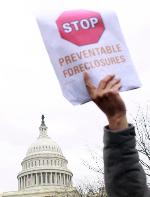 The months and days leading up to a bankruptcy filing can make or break your financial future, and possibly stop you from being able to file for bankruptcy. The following six (6) mistakes must be avoided if you are thinking of filing bankruptcy:
The months and days leading up to a bankruptcy filing can make or break your financial future, and possibly stop you from being able to file for bankruptcy. The following six (6) mistakes must be avoided if you are thinking of filing bankruptcy:
Retirement Accounts
Borrowing against or cashing in your retirement accounts to try to solve your debt problem is usually not a good idea. In Nevada, debtors are allowed to keep up to $500,000 per individual during a bankruptcy. By cashing out these accounts you run the risk that these funds will be treated as a non-exempt asset. As such, these funds will not be protected in bankruptcy and you might be forced to turnover these funds to the Trustee. Therefore, before removing any funds from a retirement account, you should speak with a bankruptcy attorney. An attorney can help you determine if, in your circumstances, these funds may be used to avoid bankruptcy or if moving them would be a costly mistake.
Home Equity
Much like your retirement accounts, raiding the equity in your home to service your debts can be a costly mistake. Nevada allows debtors to retain $550,000 in equity in their home when they file a bankruptcy. Borrowing this equity can make it more difficult to stay in your home if you eventually need to file a bankruptcy. Speak with an attorney to determine if the equity in your house is sufficient to avoid bankruptcy or if it should remain in your home.
Incurring Additional Debt
Do not go into additional debt if you are seriously considering bankruptcy as an option. Racking up additional debt when you know you cannot repay and have no intention of ever repaying the debt is considered fraudulent. If you find yourself considering payday loans or high interest title loans to buy groceries, pay the energy bill, or put gas in your car, it is probably time to speak with a bankruptcy attorney about your options.
Ignoring Your Problems
When debts begin to pile up, there is a temptation to bury your head in the sand and hope the problem goes away. Waiting to deal with your problems can cause you irreversible financial harm. In addition, you are not helping yourself by dodging people trying to serve you with papers. Creditors only need to attempt to serve you. The only thing you have accomplished by not receiving service is that you will not know what court proceedings have been filed against you.
Paying Back Relatives or Business Partners
Do not repay a relative, friend, or business partner before filing bankruptcy. The bankruptcy court can make your relative or business partner repay to your bankruptcy estate anything you have paid them for up to a year. If you have any question on whether or not to pay a creditor, contact a bankruptcy lawyer.
Trying to Beat the System
Do not transfer any assets out of your name prior to filing bankruptcy without consulting an attorney. Unless the transfer is in the ordinary course of business and for fair market value, you run the risk of the transfer being found fraudulent. Do not keep any information from your attorney. Federal bankruptcy crimes are committed by people trying to keep the court from knowing about debts, assets, or transfers and can result in a loss of a discharge and, in some case, fines and prison time.
Randy M. Creighton, Esq.
 Click here to listen to the Legal Hour on KDWN AM720 from August 24nd, 2011. Managing Partner, Tisha Black Chernine, Esq., discusses commercial leasing, the motivations of banks to foreclose, assets protected from creditors, exposure of co-signers on mortgage loans and statutory defective foreclosures.
Click here to listen to the Legal Hour on KDWN AM720 from August 24nd, 2011. Managing Partner, Tisha Black Chernine, Esq., discusses commercial leasing, the motivations of banks to foreclose, assets protected from creditors, exposure of co-signers on mortgage loans and statutory defective foreclosures.

 At the end of August, Lender Processing Services (LPS) reported that mortgages on 4,947,000 properties nationwide were at least 30 days past due but NOT in foreclosure. Of those, 2,374,000 were 90 or more days delinquent. The good news is that the delinquency rate of loans that are 30 days or more past due have declined one percent since last month and 5.1 percent since this time last year.
At the end of August, Lender Processing Services (LPS) reported that mortgages on 4,947,000 properties nationwide were at least 30 days past due but NOT in foreclosure. Of those, 2,374,000 were 90 or more days delinquent. The good news is that the delinquency rate of loans that are 30 days or more past due have declined one percent since last month and 5.1 percent since this time last year.
 When facing the decision whether or not to file for
When facing the decision whether or not to file for  The months and days leading up to a
The months and days leading up to a  The instant bankruptcy is filed, for either
The instant bankruptcy is filed, for either  The goal of any
The goal of any  Beginning September 7th, the Federal Housing Authority (FHA) will offer FHA-insured mortgages to qualifying borrowers who have a non-FHA mortgage. To be eligible, the borrower must owe more on the mortgage than the home is worth, be current on the mortgage, occupy the property as a primary residence, qualify for the new loan under standard FHA underwriting requirements, and have a credit score of at least 500. Similar to the under-performing Home Affordable Refinance Program (HARP), the FHA program will have limited affect on the current housing situation because so many borrowers are behind in their payments and lenders are reluctant to write off a portion of the principal.
Beginning September 7th, the Federal Housing Authority (FHA) will offer FHA-insured mortgages to qualifying borrowers who have a non-FHA mortgage. To be eligible, the borrower must owe more on the mortgage than the home is worth, be current on the mortgage, occupy the property as a primary residence, qualify for the new loan under standard FHA underwriting requirements, and have a credit score of at least 500. Similar to the under-performing Home Affordable Refinance Program (HARP), the FHA program will have limited affect on the current housing situation because so many borrowers are behind in their payments and lenders are reluctant to write off a portion of the principal.



